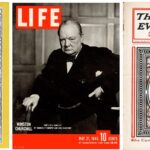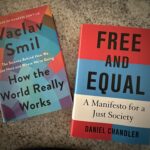 Harvard philosopher Michael Sandel’s new book What Money Can’t Buy: The Moral Limits of Markets asks us to consider the consequences of our society becoming so market driven. Decca Aitkenhead quotes Sandel in her review in the Guardian: “We live at a time when almost everything can be bought and sold,” the Harvard philosopher writes. “We have drifted from having a market economy, to being a market society,” in which the solution to all manner of social and civic challenges is not a moral debate but the law of the market, on the assumption that cash incentives are always the appropriate mechanism by which good choices are made. Every application of human activity is priced and commodified, and all value judgments are replaced by the simple question: “How much?”
Harvard philosopher Michael Sandel’s new book What Money Can’t Buy: The Moral Limits of Markets asks us to consider the consequences of our society becoming so market driven. Decca Aitkenhead quotes Sandel in her review in the Guardian: “We live at a time when almost everything can be bought and sold,” the Harvard philosopher writes. “We have drifted from having a market economy, to being a market society,” in which the solution to all manner of social and civic challenges is not a moral debate but the law of the market, on the assumption that cash incentives are always the appropriate mechanism by which good choices are made. Every application of human activity is priced and commodified, and all value judgments are replaced by the simple question: “How much?”
More from her interview and review of the book: “Sandel leads us through a dizzying array of examples, from schools paying children to read – $2 (£1.20) a book in Dallas – to commuters buying the right to drive solo in car pool lanes ($10 in many US cities), to lobbyists in Washington paying line-standers to hold their place in the queue for Congressional hearings; in effect, queue-jumping members of the public. Drug addicts in North Carolina can be paid $300 to be sterilised, immigrants can buy a green card for $500,000, best man’s speeches are for sale on the internet, and even body parts are openly traded in a financial market for kidneys, blood and surrogate wombs. Even the space on your forehead can be up for sale. Air New Zealand has paid people to shave their heads and walk around wearing temporary tattoos advertising the airline.
“According to the logic of the market, the matter of whether these transactions are right or wrong is literally meaningless. They simply represent efficient arrangements, incentivising desirable behaviour and “improving social utility by making underpriced goods available to those most willing to pay for them”. To Sandel, however, the two important questions we should be asking in every instance are: Is it fair to buy and sell this activity or product? And does doing so degrade it? Almost invariably, his answers are no, and yes.”
Sandel of course is well-known for his book Justice and Harvard lectures on political science, which were made into a popular television series and subsequently made him an unlikely celebrity around the world. His latest book expands on his thinking. For more about the book, check out A.C. Grayling’s review in the Barnes and Noble Review.





